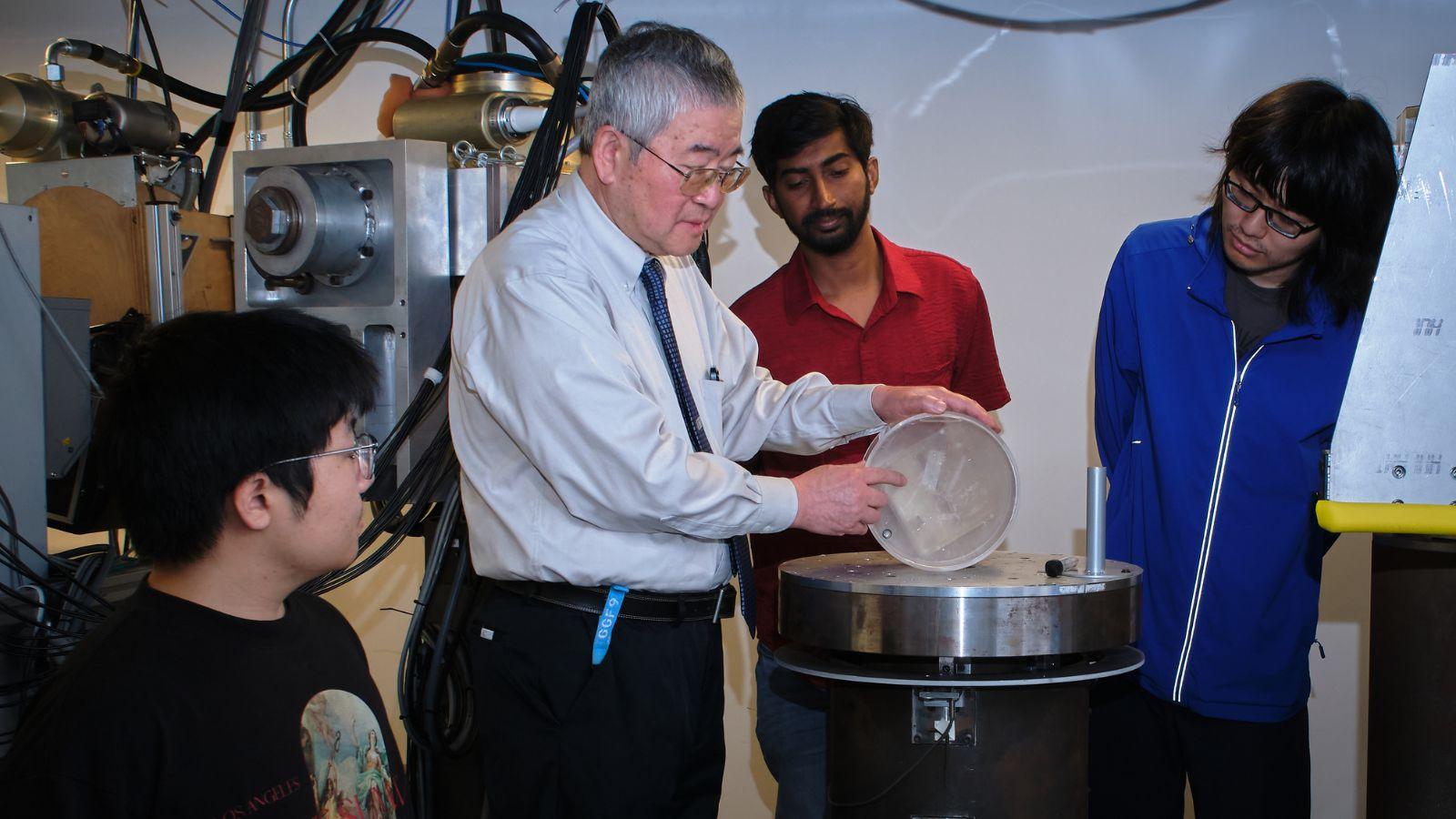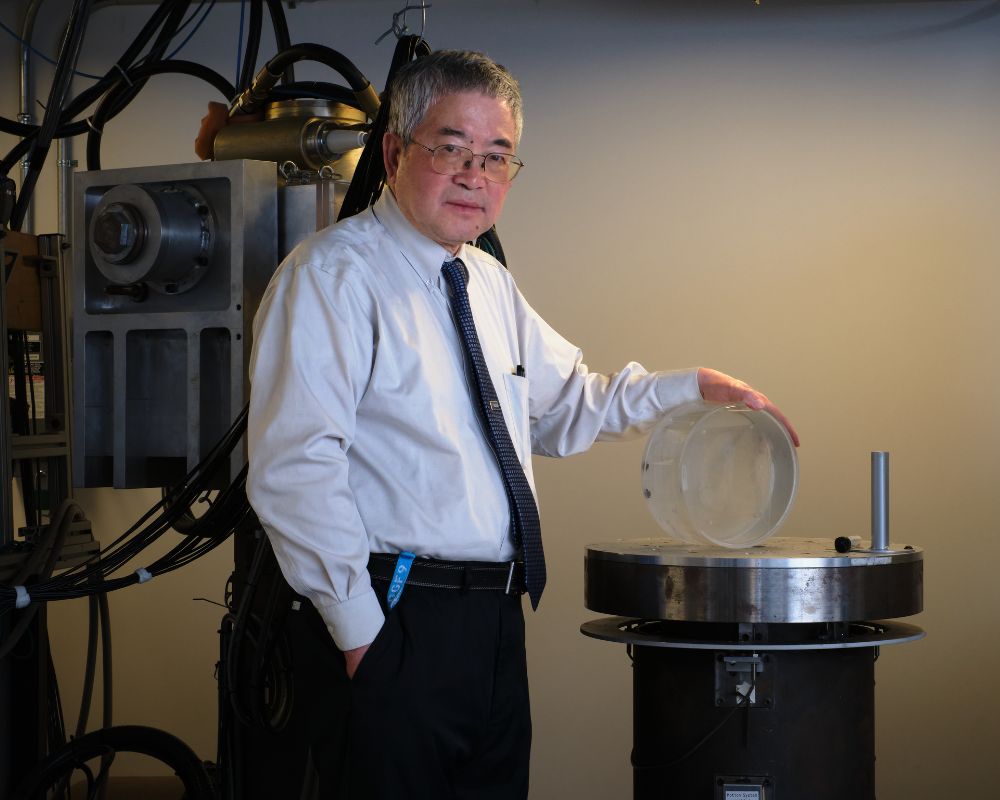Award celebrates decades of life-saving research and mentorship in biomedical imaging
July 22, 2025

Rensselaer Polytechnic Institute (RPI) is proud to announce that Ge Wang, Ph.D., Clark & Crossan Endowed Chair Professor and Director of the Biomedical Imaging Center at RPI, has been named a recipient of the 2025 Edith H. Quimby Award for Lifetime Achievement in Medical Physics by the American Association of Physicists in Medicine (AAPM).
One of the highest honors in the field, this highly selective award recognizes individuals who have made outstanding scientific contributions to the field of medical physics, demonstrated leadership in professional organizations, and significantly influenced the development of others in the profession.
“Ge Wang’s remarkable career in biomedical imaging, coupled with his heartfelt dedication to mentoring students, makes him an inspiring choice for a lifetime achievement award,” said Rebecca Doerge, Ph.D., RPI provost. “At RPI, his life-saving research and his commitment to shaping future leaders in medical physics speak volumes. His work truly embodies RPI’s mission to innovate, expand the frontiers of knowledge, and make a lasting difference in the world.”
A global leader in X-ray computed tomography (CT) and AI-driven medical imaging, Wang is best known for pioneering cone-beam spiral CT — a revolutionary technology now used in the majority of the estimated 375 million CT scans performed annually. This innovation has benefited patients worldwide, including Wang’s late mother, who underwent a cone-beam spiral CT scan as part of the successful planning for her surgery.
This personal experience reinforced what has guided Wang throughout his career — a determination to develop imaging tools that transform healthcare and benefit patients globally. “Medical imaging has the power to change lives, and that’s what drives me every day,” said Wang. “To help someone with a tool you helped create — there’s no greater motivation.”

Wang’s fascination with biomedical imaging began in graduate school, when he was drawn to its unique mix of interdisciplinary science, technical challenge, and real-world impact. In recent years he has pioneered the use of machine learning and artificial intelligence in medical imaging, developing AI-based imaging methods that are now used by major healthcare systems.
His deep-learning CT denoising techniques, developed in collaboration with GE, the FDA, and academic partners, are used widely to improve image quality while reducing radiation exposure — directly saving lives in low-dose CT settings.
Beyond research, Wang is a dedicated educator and mentor who has guided more than 100 students and postdoctoral fellows, many of whom now lead their own research programs around the world. Wang is also an innovator in science communication and AI-powered education, developing online tools and platforms that continue to expand access to biomedical imaging training.
His team authored the field’s first textbook on machine learning for tomographic imaging, and developed educational tools like the ChatGe-Medical-Imaging AI app. These contributions have shaped both the science and teaching of next-generation medical imaging worldwide.
"This award means a lot, but what’s most important is the incredible students and colleagues who’ve been part of this journey and will carry the work forward,” Wang said.
Over his prolific career, Wang has authored more than 700 peer-reviewed publications, held over 170 patents, and led landmark innovations across CT, MRI, nuclear imaging, optical molecular tomography, and multi-modality fusion. Wang serves as the Editor-in-Chief of IEEE Transactions on Medical Imaging, the flagship journal in the medical imaging field, and is a Fellow of AAPM, IEEE, AIMBE, AAAS, SPIE, Optica, and the National Academy of Inventors. He has received numerous awards throughout his career, including the IEEE EMBS Academic Career Achievement Award, the SPIE Meinel Technology Achievement Award, and the Edward J. Hoffman Medical Imaging Scientist Award.
“Ge Wang exemplifies the spirit of engineering at RPI — combining deep scientific insight with a commitment to improving human health,” said Shekhar Garde, the Thomas R. Farino Jr. ’67 and Patricia E. Farino Dean of the School of Engineering at RPI. “His pioneering work in medical imaging has not only advanced the field but has helped save countless lives. Ge is also a dedicated mentor and innovative educator, who continues to bring new ideas to inspire the next generation of innovators.”
Wang will be formally honored at the AAPM Annual Meeting in Washington, D.C., on July 28, 2025, where his lifetime of achievements will be celebrated by leaders and peers across the medical physics community.